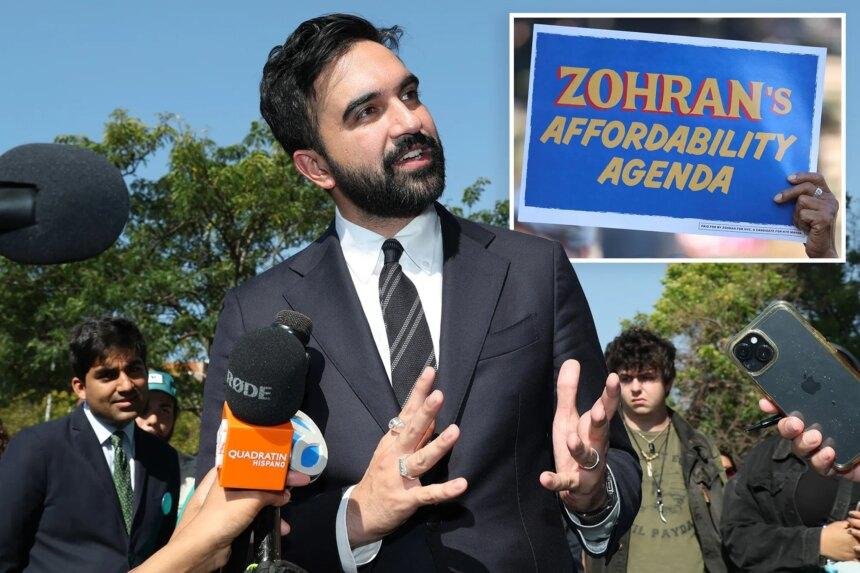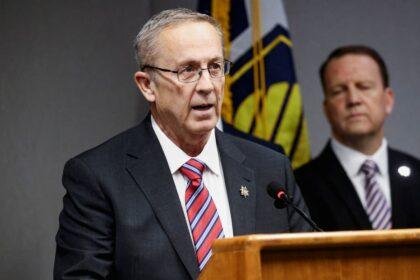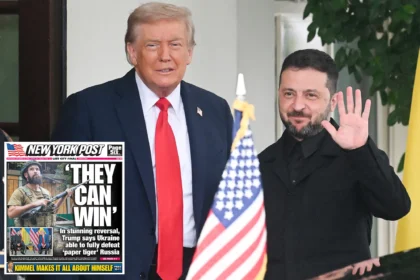New York Mayoral Candidate Zohran Mamdani Faces Scrutiny Over Housing Proposals
As the race for New York City’s mayoral seat heats up, candidate Zohran Mamdani finds himself at a crossroads regarding his stance on three critical housing-related ballot proposals. While he has positioned himself as a champion for affordable housing, his silence on these pivotal measures has raised eyebrows among voters and political analysts alike.
The Ballot Proposals: A Shift in Power
The proposals in question-Nos. 2, 3, and 4-are set to be voted on November 4 and have become a contentious issue between the current administration led by Mayor Eric Adams and the City Council. If approved, these measures would significantly alter the city’s zoning and affordable housing regulations, consolidating more power within the mayor’s office. City Council Speaker Adrienne Adams (no relation to the mayor) has voiced strong opposition, arguing that the proposals could mislead voters and ultimately harm the very communities they aim to serve.
“New Yorkers deserve to know the truth about what’s at stake in this election,” Speaker Adams stated during a press conference. She emphasized that while there is a consensus on the need for more housing, the language used in the ballot measures obscures their true implications. “These proposals are trying to exploit the real needs of New Yorkers,” she added.
Concerns Over Gentrification and Affordability
Critics, including Speaker Adams, have expressed concerns that the proposed changes would lead to less genuinely affordable housing and increased gentrification. “Our neighborhoods will get less truly affordable housing, less investment, and will be vulnerable to more unwelcome, unwanted gentrification,” she warned. This sentiment reflects a broader anxiety among residents who fear that the city’s housing crisis will only worsen if these measures pass.
Despite the urgency of the situation, Mamdani has not publicly articulated his position on these proposals. When pressed by reporters, members of the City Council admitted they had not directly confronted him about his stance. Majority Leader Amanda Farias mentioned that she had discussed the proposals with Mamdani in “broad strokes,” but no in-depth conversation had taken place.
Union Leaders Weigh In
Manny Pastreich, president of SEIU 32BJ, a significant labor union in New York City, has also urged his members to vote against the ballot measures. He claims to have discussed the potential negative impacts of the proposals with Mamdani, but noted that the candidate did not commit to a clear position. “I think he is very interested in how you make the process work faster and work better,” Pastreich remarked, indicating that Mamdani may be more focused on procedural improvements than on taking a definitive stance.
The Political Landscape
Mamdani’s hesitance to take a firm position on these proposals is particularly striking given his campaign’s emphasis on affordable housing. As a democratic socialist, he has made affordability a cornerstone of his platform. However, his reluctance to engage with these specific ballot measures raises questions about his commitment to the issue.
Political analysts have noted that Mamdani’s indecision could be a strategic move, allowing him to appeal to a broader range of voters. “The affordability issue for Mamdani is rapidly becoming whether he can afford to keep dodging straight positions,” quipped a veteran New York City political strategist.
In contrast, independent candidate Andrew Cuomo has openly supported the ballot proposals, arguing that they would eliminate local opposition and expedite the construction of affordable housing. Cuomo believes that shifting decision-making authority from local elected officials to mayoral appointees could streamline the process, thereby increasing housing supply.
Diverging Opinions on Local Control
The debate over these proposals also highlights a broader ideological divide regarding local control. Republican candidate Curtis Sliwa has voiced strong opposition, arguing that the measures would enable the mayor’s office to favor wealthy developers at the expense of local communities. “There’s no zoning anymore. You’re a developer? You’re a realtor? The price is right, let’s face it,” Sliwa stated, emphasizing the need for more localized decision-making in housing matters.
This tension between local control and centralized authority is not new in New York City politics. Historically, debates over zoning and housing have often pitted community interests against broader citywide goals. The current proposals represent a significant shift in this dynamic, raising questions about who truly benefits from the changes.
The Stakes for New Yorkers
As the election approaches, the stakes for New Yorkers could not be higher. The outcome of the ballot proposals will not only influence the future of housing in the city but also shape the political landscape for years to come. With Mamdani’s silence on these critical issues, voters are left to wonder whether he is truly committed to the affordable housing agenda he has championed.
In a city grappling with a housing crisis, the need for clear and decisive leadership has never been more pressing. As Mamdani continues to meet with stakeholders to assess the implications of the proposals, the clock is ticking. Voters will soon head to the polls, and they deserve to know where their candidates stand on the issues that matter most.
Conclusion
Zohran Mamdani’s reluctance to take a definitive stance on the housing ballot proposals has sparked significant debate among voters and political observers. As the election date approaches, the implications of these measures will resonate far beyond the immediate political landscape. With affordable housing at the forefront of public concern, the need for transparency and accountability in leadership has never been more critical. As New Yorkers prepare to cast their votes, the question remains: will Mamdani step up and clarify his position, or will he continue to navigate the complexities of a contentious political environment?










